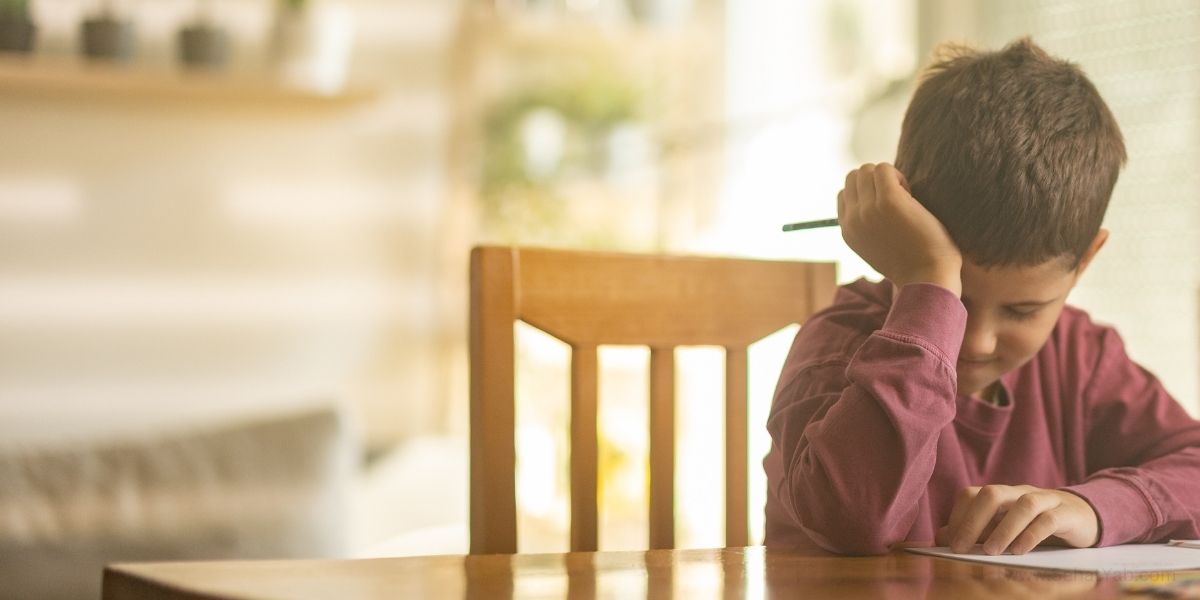Children’s mental health is the most overlooked aspect of overall health, especially in countries like Pakistan where awareness of mental health is in its initial stages. In a society, where good physical health is considered a top priority mental and emotional health could be overshadowed.
With increasing recognition of mental health in Pakistan, we should also begin to address children’s mental health. In this article, we are going to understand the challenges of mental health faced by children in Pakistan, the signs that indicate when they need to seek professionals, and the detailed steps the parents and guardians can take to support their children’s mental well-being.
Understanding Children’s Mental Health
Mental health in children can be recognized as how they think, feel, talk, and behave as they are growing. It includes a child’s emotional strength, psychological thinking, social interaction, handling stress, and making decisions. Good mental health is quite important in children as it decides how well they function as adults. The behavioral changes and emotional difficulties of children are often missed by parents. However, if the problem of mental health in children remains unnoticed then it could cause many issues in their later life including academic difficulties, relationship problems, low confidence, lack of self-awareness, etc.
Children’s Common Mental Health Issues in Pakistan
Children in Pakistan may face a huge variety of mental health challenges because of many reasons like societal pressures, lack of knowledge, and cultural stigmas.
Some of the common mental health issues among children are given below:
1. Anxiety Disorders
Anxiety disorder is the most common mental health issue among children. These disorders include excessive fear without any reason, nervousness, and being triggered by many factors including social interaction, family problems, or academic pressure. In Pakistan where academic performance is highly valued children may experience significant anxiety related to academic achievement or expectations from parents.
2. Depression
Depression in children can be challenging to find as compared to adults. However, it can be analyzed in children by seeing the signs as they appear sad or become angry quickly. Many parents did not notice these symptoms and children may struggle to communicate their feelings of sadness or loneliness leading to worse conditions.
3. Attention-Deficit/Hyperactivity Disorder (ADHD)
ADHD is often overlooked by parents and children who are suffering from ADHD may labeled as “naughty” leading to punishment rather than proper intervention. ADHD is a mental condition in which a child can’t sit still and struggles to maintain focus or do actions quickly before thinking.
4. Trauma and Post-Traumatic Stress Disorder (PTSD)
Sometimes fear of traumatic events remains constant in children’s minds like disasters, voilances, and loss of loved ones which can lead to the development of PTSD. Symptoms of PTSD in children can be nightmares, flashbacks, or severe anxiety. Unfortunately, most of the children don’t get enough support and help to move on from past traumatic experiences.
5- Behavioral Disorders
Disruptive behavior is a feature of behavioral disorders like conduct disorder (CD) and oppositional defiant disorder (ODD). These disorders can negatively impact to a child’s performance at home or school.
6. Physical Symptoms with No Clear Cause
Sometimes children who are facing mental health issues may experience physical symptoms such as headaches, back pain, and stomachaches without any clear medical cause. High levels of stress or anxiety can be the cause of these physical disturbances.
7. Self-Harm or Talk of Suicide
If a child is engaging in self-harm or expressing suicidal thoughts, then don’t wait a single second and immediately seek help from professionals. These types of actions need to be stopped and treated quickly as these are serious.
When to Seek Professional Help
It’s difficult to analyze whether a child needs help regarding mental health issues, especially in a society where mental health issues are not commonly acknowledged. However, certain symptoms or signs can help parents or guardians to understand the mental state of their children. Here are the most common signs that are indicators that your child needs professional help from experts.
Consistent Sadness
If a child constantly appears as sad and not interested in activities that he/she once enjoyed, it could be a sign of depression. Anyhow it’s normal for children to be sad occasionally, but extended depressive episodes need to be treated urgently.
Extreme Anxiety or Fear
Children who experience excessive anxiety and face it in their daily lives may have an anxiety disorder. The nature of children is fearless, but if children start experiencing anxiety about the future, panic attacks, or avoidance of certain situations then their parents should instantly take action and save their child from lifetime traumatic mental health.
Changes in Behavior or Personality
Significant changes in a child’s behavior or personality such as aggression or a decline in academic performance can be a sign of internal fighting with mental health issues. Parents should be concerned about these changes if they occur without any reason abruptly.
Difficulty Concentrating or Hyperactivity
Children who consistently face trouble focusing on a single task and controlling their impulses may have ADHD. if these symptoms are affecting a child’s ability to succeed in school and social interaction then, it may be time to seek professional help
The Role of Parents and Guardians
Parents and guardians play an important role in supporting their children’s mental health. Although seeking professional help is crucial when necessary, parents could take some necessary actions to promote their child’s mental well-being and provide a supportive environment.
Open Communication
Encouraging open communication with your child is the most important thing you can do as a parent. Mostly parents build so strict environment at home that child can’t even discuss with patients what he is going through in life. Make a friendly bond with your children and let them know that it’s okay to talk about their feelings and that you are always on their back to support and understand them
Educate Yourself About Mental Health
Parents need to become knowledgeable about their child’s cognitive development, sensitivity to the natural world and what are they absorbing from the surroundings. Understanding mental health issues in detail, will help you in recognizing the symptoms and make timely decisions for seeking professional help if necessary.
Promote a Healthy Lifestyle
There is a well-known proverb “A healthy body has a healthy mind”. Try to provide a healthy lifestyle to your children, encourage them in physical activities regularly, and allow them to make decisions, with a balanced diet, and adequate sleep can do wonders. These elements can lead to a happy and stress-free life.
Set Realistic Expectations
Making expectations and giving confidence they can do is important but expectations should be realistic. You can’t expect a fish to fly high in the sky, instead of putting pressure on children to outshine in every task which could create tension and anxiety of failure in their minds. Try to set realistic goals for them to achieve and help them in becoming more confident.
Be a Positive Role Model
Children notice every single detail and learn from observing the behavior and ding of their parents. Children will learn how to manage their stress and emotions and will feel better mentally if parents contribute to maintaining a healthy lifestyle, open communication, and practicing self-care.
Seek Professional Help When Needed
If you even notice signs that your child is facing mental health issues then don’t hesitate to seek professional help. Early recognition and timely action can have a positive impact on children’s growth and future development. Mental health professionals and psychologists will provide support and treatment to recover and start living happily.
How to Seek Professional Help
If you or someone who has experienced the above-mentioned signs, but is confused about which mental health professional to trust then Sehatyab is here to provide professional help to solve mental health issues by online consultation. You can book an appointment and choose any mental health professional by reading their expertise mentioned on the site. Here are the steps to take consultation from Sehatyab’s mental health experts.
- Select a professional
- Pick a convenient date and time for consultation
- Complete the payment
- Join your session and benefit from the experience of professional mental health experts.
Conclusion
Children’s mental health is an important aspect of their overall development and quality of life. In Pakistan, where mental health is growing, it’s the responsibility of parents or teachers and society as a whole to play their role in recognizing and improving the mental health issues in children. By understanding these common health issues, and knowing well where to seek professional help we can ensure our children grow healthy and become well-adjusted adults. our children are our future, and we should never ignore the factor if they are facing mental health issues and do our best to provide professional online psychologist help so they can become better and live happily and satisfactorily in their coming lives.




